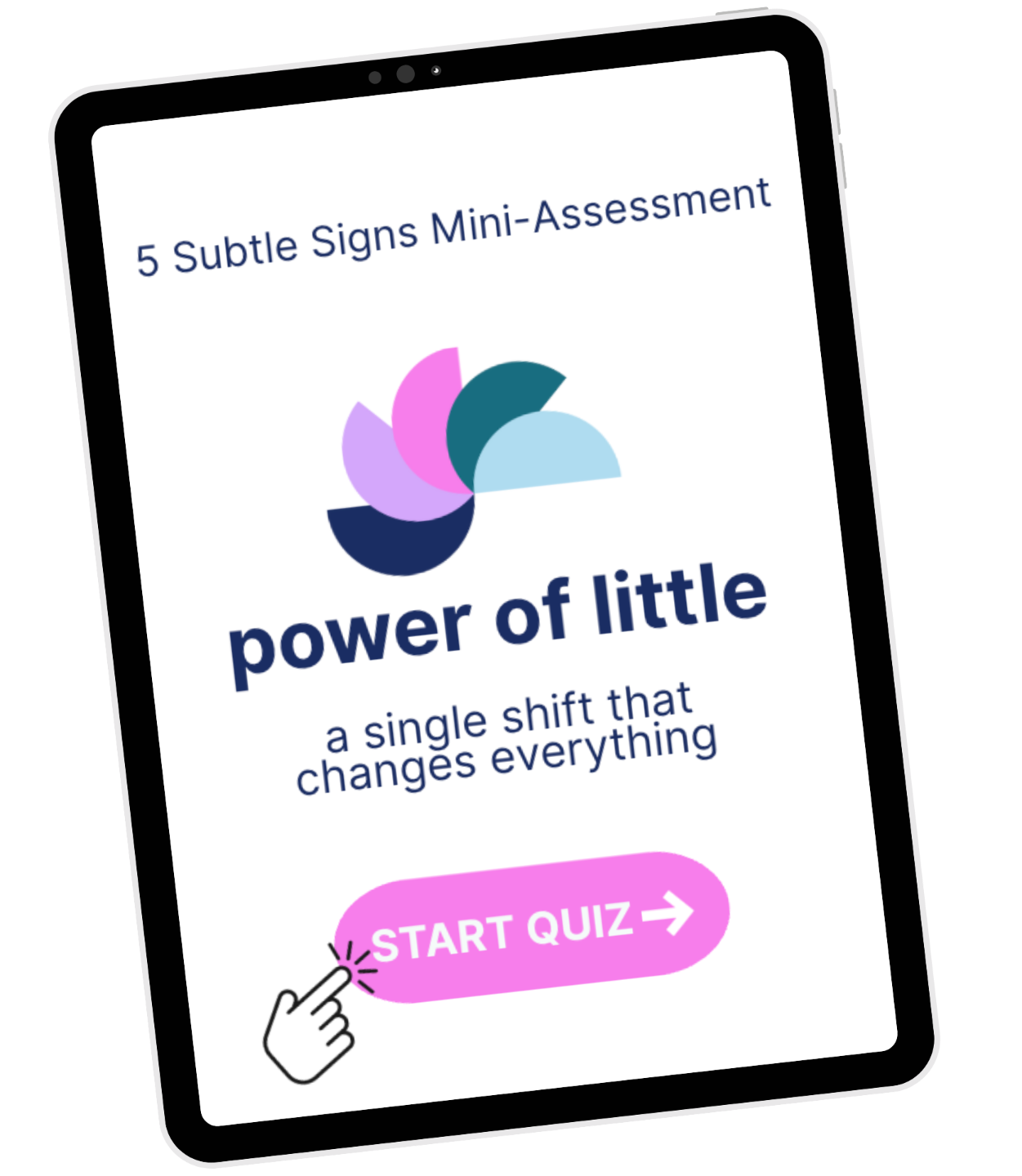Moving Through Mental Fog: Personal Growth Tips for Clarity
Jun 28, 2025
When Mental Fog Clouds Personal Growth
If you've ever tried to navigate personal growth while feeling like you're moving through mental fog, you're not alone. That cloudy, disconnected feeling that makes decision-making feel impossible? It's more common than you think, especially for women in midlife transitions.
The relationship between hormonal health and mental clarity is profound, and understanding this connection can transform how you approach your personal development work. Here's why addressing brain fog might be the gentle first step that makes tools like self-reflection workbooks and personal growth practices more accessible and effective.
The Science Behind Menopause Brain Fog
Brain fog—that frustrating experience of mental cloudiness, forgetfulness, and difficulty concentrating—affects nearly two-thirds of women during their menopausal transition . Research shows that perimenopause significantly impacts verbal learning, verbal memory, processing speed, attention, and working memory .
This isn't just "normal aging." The hormonal changes during menopause, particularly declining estrogen levels, directly affect brain function . Estrogen influences neurotransmitter activity, enhances serotonin and dopamine function, and helps maintain blood flow to the brain—all crucial for memory, mood, and focus
Recent systematic reviews and meta-analyses involving over 27,000 participants have revealed important insights about hormone replacement therapy's effects on cognitive function . The timing of intervention matters significantly: when hormone therapy is initiated in midlife or close to menopause onset, estrogen therapy shows improvements in verbal memory, while late-life initiation shows no such benefits .
The World Health Organization recognizes that menopause requires comprehensive support addressing not just physical symptoms, but also the psychological and social dimensions of this transition . This holistic perspective acknowledges that mental clarity and emotional well-being are interconnected aspects of midlife health.
How Clearer Thinking Enhances Self-Discovery Work
When the mental fog begins to lift—whether through medical treatment, lifestyle changes, or both—many women report a renewed ability to engage with personal development practices. This isn't coincidental; cognitive clarity directly impacts our capacity for:
- Self-Reflection and Introspection
Clear thinking makes it easier to engage with journal prompts, assessment tools, and reflective exercises. When you're not constantly battling mental fatigue, you have more mental energy available for meaningful self-exploration. - Decision-Making and Goal Setting
Brain fog can make even simple decisions feel overwhelming. As cognitive function improves, many women find themselves better able to identify their values, set meaningful goals, and make choices aligned with their authentic selves. - Emotional Processing and Integration
The ability to process complex emotions and life experiences improves when mental clarity returns. This enhanced emotional intelligence supports deeper personal growth work.
The Critical Window for Intervention
Harvard research on memory and menopausal status has shown that reproductive stage, not just chronological age, significantly contributes to changes in memory and brain function . Studies of women ages 45-55 reveal that lower estradiol levels correlate with more pronounced changes in the hippocampus, a primary brain region for learning and memory .
This research supports what many clinicians call the "critical window hypothesis"—the idea that hormonal interventions may be most beneficial when started early in the menopausal transition . For women experiencing cognitive symptoms, addressing hormonal factors early may help preserve mental clarity during this pivotal life stage.
Gentle Integration: Combining Medical Support with Personal Development
The Power of Little philosophy recognizes that sometimes the gentlest approach includes seeking medical support alongside personal development work. When brain fog lifts, tools like the Unstuck Workbook become more accessible and effective because you have the mental energy and clarity to engage deeply with the self-discovery process.
This integrative approach might include:
- Medical consultation for persistent cognitive symptoms
- Gentle lifestyle modifications like stress reduction and sleep optimization
- Self-guided reflection tools that honor your current capacity
- Community support from others navigating similar transitions
Your Gentle Next Step
If you're experiencing brain fog or cognitive changes that make personal growth work feel overwhelming, consider this: addressing these symptoms isn't giving up on gentle approaches—it's creating the foundation that makes gentle progress possible.
Ready to explore more? Join our email list for gentle insights on integrating medical support with personal development work. Plus, get first access to our upcoming Unstuck Community—a space designed for women who want to approach midlife transitions with both scientific understanding and soulful support.
Remember: Taking care of your brain is taking care of your whole self. Gentle is still powerful. And sometimes the most loving thing you can do is address the physical factors that support your emotional and spiritual growth.
If you're ready to explore how clearer thinking can support your journey to self-discovery, take our mini assessment here: https://www.poweroflittle.com/5-subtle-signs
You can also join our waitlist for the Unstuck Workbook and Unstuck Cirlce Community, both launching soon. Your gentle path forward starts with understanding all the pieces of your wellbeing puzzle.
References:
Weekly Gentle Support for Your Midlife Journey
Gentle prompts, science-backed tips, and stories of tiny wins — delivered every Friday.
By subscribing, you agree to receive ongoing updates



